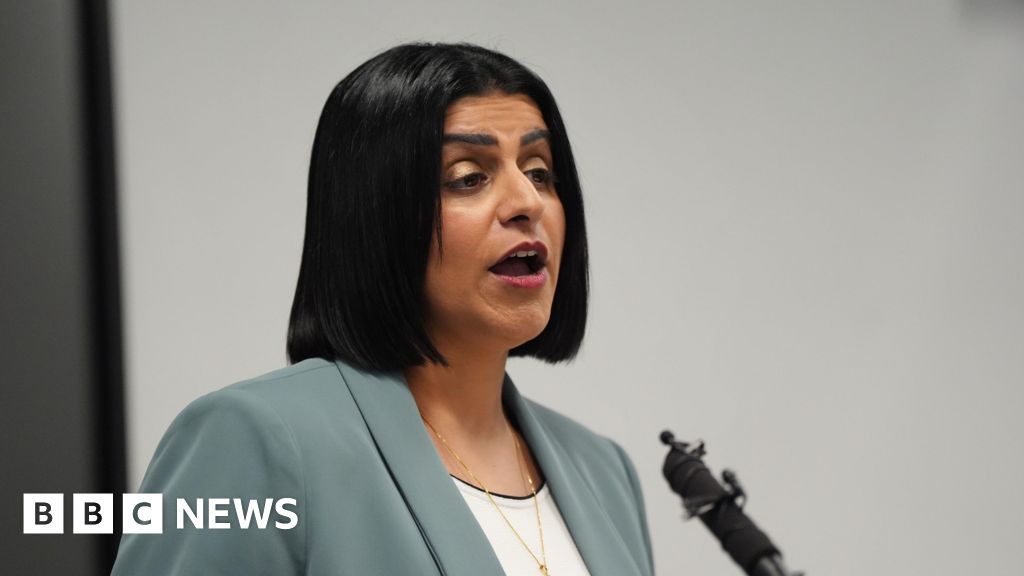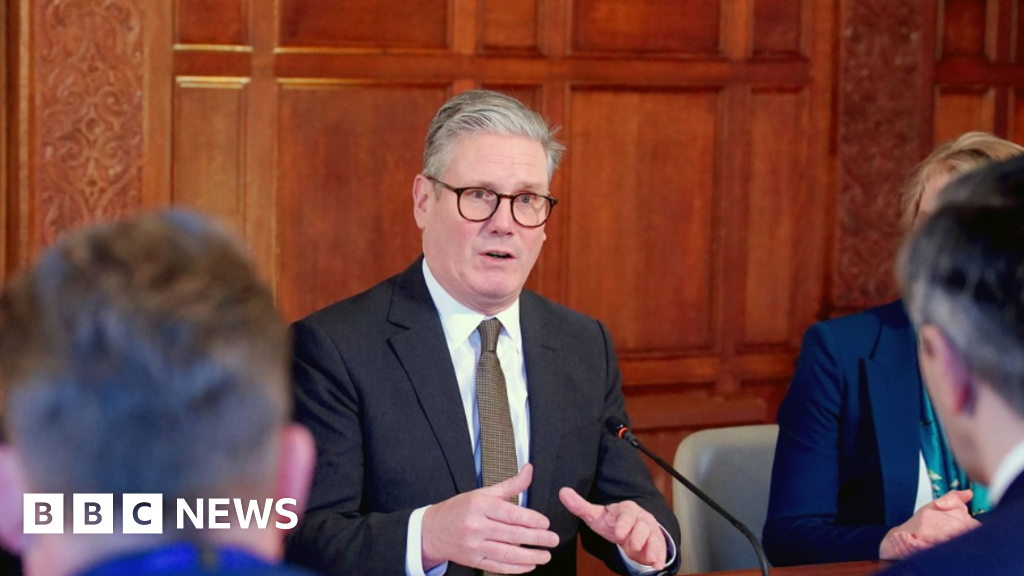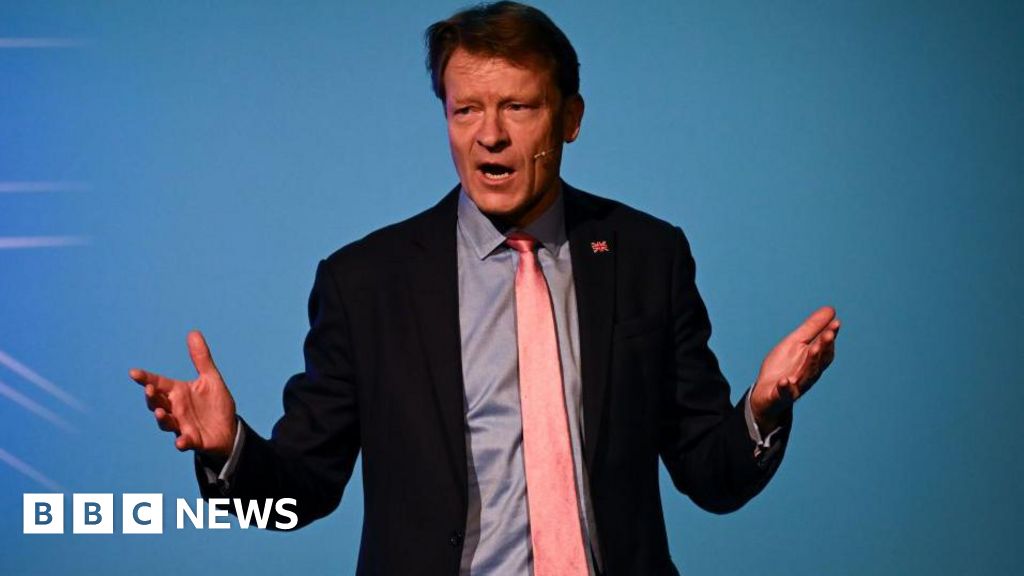ARTICLE AD BOX
By Nick Eardley & Sinead Wilson
BBC Politics
Two Conservative MPs have written to Boris Johnson, urging him not to press on with plans to cut Universal Credit payments from October.
Peter Aldous and John Stevenson said the £20-per-week increase, brought in as a response to the pandemic, should be made permanent.
The letter comes amid warnings from two charities that cutting the uplift will push millions of families into debt.
But ministers have said the increase was only ever a temporary measure.
In the letter, the MPs, who represent constituencies in Suffolk and Carlisle and not so-called "red wall" former Labour strongholds, said they did "not take this step lightly".
But they told the prime minister they had "very serious concerns" about the ability of low income families to make ends meet if the top-up is removed.
And they said they were "alarmed to see the government unwilling to heed the widespread warnings that are coming from all quarters" about the impact on living standards.
'Hardworking families'
The letter read: "Our central promise at the last election, that you articulated so well, was to level up.
"Infrastructure is a crucial part of this agenda, but with the emphasis solely on eye-catching projects we are at risk of forgetting the importance of investment in people in these communities, without whom this vision cannot be realised."
They told Mr Johnson that the majority of people impacted by the cut "are in fact already in work" and "low paid, hardworking families will see up to £1,040 slashed from their income".
The £20-a-week boost is "one of our best legacies from the pandemic" and the investment must continue, they added.
image sourceGetty Images
image captionThe MPs fear the impact of the cut on "hardworking families"Their intervention comes amid increased warnings from campaigners as the change looms.
The charity Citizens Advice has warned that a third of people on Universal Credit, or at least 2.3 million people, will end up in debt when the extra payment is removed in October.
It said the average shortfall for people would be between £51 and £55 a month.
Its chief executive, Dame Clare Moriarty, said: "A cut to Universal Credit this autumn will be a hammer blow to millions of people.
"It undermines our chance of a more equal recovery by tipping families into the red and taking money from the communities most in need.
"The government must listen to the growing consensus that it should reverse course and keep this vital lifeline."
'Time for MPs to step up'
In a separate breakdown of the figures, the Joseph Rowntree Foundation, which campaigns against poverty, said a third of working age families would be affected in more than 400 constituencies across Britain.
Deputy director of policy at the charity, Katie Schmuecker, said with warnings coming from all sides, "now is the time for all MPs to step up and oppose this cut to their constituents' living standards".
She added: "Plunging low-income families into deeper poverty and debt as well as sucking billions of pounds out of local economies is no way to level up.
"It's not too late for the prime minister and chancellor to listen to the huge opposition to this damaging cut and change course."
The Universal Credit uplift was designed to be a temporary measure to help people through the pandemic.
And the number of people on the benefit has doubled over the course of the crisis - so the extra money costs a lot at a time when the Treasury is trying to bring spending under control.
But charities and opposition parties argue removing the extra £20 a week will have a devastating impact on individuals and families already struggling to make ends meet.
There was a debate in government over ending the uplift - the Work and Pensions Secretary Therese Coffey argued for it to stay.
And several Conservatives are nervous about the impending change - with this letter a sign of how unhappy some backbenchers are.
The question is whether more will speak out in the coming weeks, and how much pressure they will put on No 10 and 11 to have a rethink.
Labour also criticised the cut, saying it would hit the lowest paid hardest and damage the country's economic recovery.
Shadow work and pensions secretary, Jonathan Reynolds, said: "Time is running out for the Conservatives to see sense, back struggling families and cancel their cut to universal credit.
"Labour would maintain the uplift until we can replace universal credit with a fairer social security system."
image sourcePA Media
image captionChancellor Rishi Sunak has said the uplift was only meant as a temporary measureSpeaking in July, Chancellor Rishi Sunak confirmed the uplift would be scrapped "as it was always intended to be a temporary measure".
He said like the furlough scheme, the top-up was part of the policies put in place to deal with the crisis and would have to come to an end.
And he said ministers thought the best approach going forward to support people was to "help them into work and make sure those jobs are well paid".
A government spokesman said: "The temporary uplift to Universal Credit was designed to help claimants through the economic shock and financial disruption of the toughest stages of the pandemic, and it has done so.
"Universal Credit will continue to provide a vital safety net and with record vacancies available, alongside the successful vaccination rollout, it's right that we now focus on our Plan for Jobs, helping claimants to increase their earnings by boosting their skills and getting into work, progressing in work or increasing their hours."

 3 years ago
119
3 years ago
119








 English (US) ·
English (US) ·